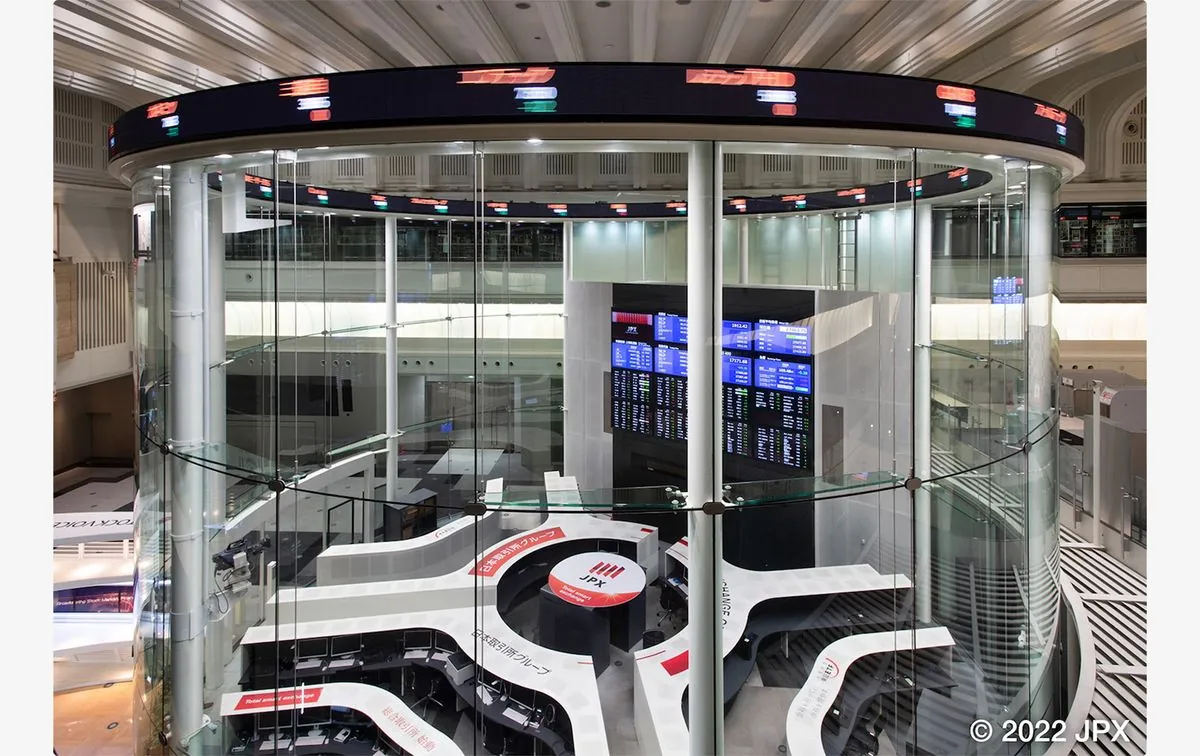Nikkei 225 Rebounds Sharply After Significant Drop, Reflecting Market Volatility
Japan's Nikkei 225 index recovers 8.7% following a 12.4% plunge. The rebound is linked to the Bank of Japan's recent interest rate hike, affecting global investment strategies.

Japan's primary stock market indicator, the Nikkei 225, experienced a significant rebound on August 6, 2024, following a substantial decline the previous day. The index, which tracks 225 large, publicly-owned companies in Japan, rose by 8.7% to 34,211.83 points by late morning, partially recovering from the 12.4% drop on August 5.
This volatility in the Japanese stock market is closely tied to the Bank of Japan's recent decision to raise its main interest rate from near-zero levels. This move, while strengthening the yen, has disrupted global investment strategies that relied on Japan's previously ultra-low interest rates.
Major Japanese corporations saw substantial gains during this recovery:
- Toyota Motor Corp.: Up nearly 12%
- Tokyo Electron: Increased almost 12%
- Honda Motor Co.: Advanced 16%
- Mitsubishi UFJ Financial Group: Rose 7.6%

The Nikkei 225, first calculated in 1950, has a history of significant fluctuations. Its most substantial percentage gain occurred in October 2008, reaching 14.2%. Despite the recent turbulence, the index is now approaching levels similar to those of August 2023.
Stephen Innes of SPI Asset Management commented on the market's rapid turnaround:
"As always with the market, take this to heart: Yesterday's misery often turns into today's punchline. The swift twists and turns of trading can transform what seemed like a dire situation into a fleeting memory, one that's often laughed about in trading rooms the next day."
This market volatility highlights the interconnectedness of global financial systems. Japan, the world's third-largest economy by nominal GDP, has long maintained low interest rates to combat deflation. The recent policy shift by the Bank of Japan has far-reaching implications for international investors and the value of the yen, which significantly impacts Japan's export-oriented economy.
The Nikkei 225's composition reflects Japan's diverse economic strengths, including automotive giants like Toyota and Honda, technology leaders such as Tokyo Electron, and financial powerhouses like Mitsubishi UFJ Financial Group. These companies play crucial roles in Japan's position as a global economic leader and innovator in various sectors.
As markets continue to adjust to the new interest rate environment, investors and analysts will closely monitor the Nikkei 225 for indications of Japan's economic health and global financial trends.


































